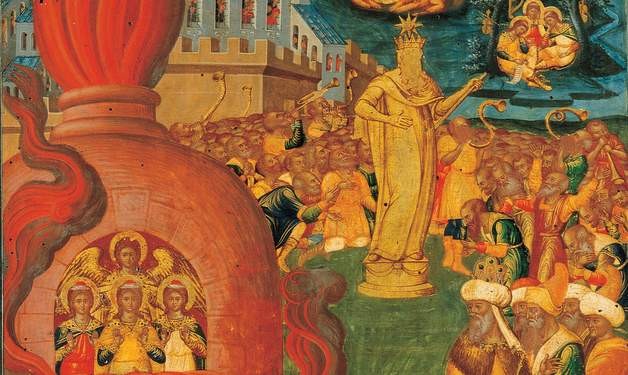Pop Quiz: Is it good to remember past sins?
I had never thought much of this question until I read a passage that astonished me in Spiritual Theology by Fr. Jordan Aumann, O.P. In discussing the purification of memory, his words surprised me:
Forget Past Sins. This is the first step, and it is absolutely indispensable for all who aspire to eternal salvation. The remembrance of one’s own sins or of those of another has a strong power for suggesting to the soul the same things by way of a new temptation, and of disposing it to sin again, especially if a vivid imagination is associated with the recollection. The soul must reject immediately and energetically any remembrance of this kind.
To clarify, this purification of memory is not a naïve denial that our sins ever happened; rather, it is a refusal to wallow in either the pleasure or the shame of these sins. Such recollection can tempt us to new sins and lead to scrupulosity and despair.
St. Paul’s life exemplifies this purification of memory. He fully admits to persecuting Christians before his conversion, but he neither relives its pleasure nor carries the baggage of its guilt. God’s mercy permeates his memory. Thus, he writes to Timothy:
I was once a blasphemer and a persecutor and an arrogant man, but I have been mercifully treated because I acted out of ignorance in my unbelief. Indeed, the grace of our Lord has been abundant, along with the faith and love that are in Christ Jesus. This saying is trustworthy and deserves full acceptance: Christ Jesus came into the world to save sinners. Of these I am the foremost. But for that reason I was mercifully treated. (1 Tim 1:13–16)
St. Catherine of Siena echoes this purification of memory in her Dialogue, as she records the words of God the Father to her:
I do not want [the soul] to, nor should she, think about her sins either in general or specifically without calling to mind the blood [of Christ] and greatness of my mercy. Otherwise she will only be confounded. For if self-knowledge and the thought of sin are not seasoned with remembrance of the blood and hope for mercy, the result is bound to be confusion.
Thus, in answer to the opening question, we can distinguish two types of remembrance of sin. One seasoned with God’s mercy produces humility and vigilance against sins, i.e., the virtue of penance. The other provokes pleasure or shame, and must be avoided as a near occasion of sin.
This distinction depends on the individual: the memory of an unchaste sin will renew the chaste man’s growth in the virtue of penance but will tempt the unchaste man to new sins. Thus, the purification of memory correlates with growth in virtue.
St. Thérèse of Lisieux sings of the consummation of this purification of memory in her poem, “Vivre d’Amour!…”. Her sixth stanza reads:
Living on Love is banishing every fear,
Every memory of past faults.
I see no imprint of my sins.
In a moment love has burned everything…
Divine Flame, O very sweet Blaze!
I make my home in your hearth.
In your fire I gladly sing:
“I live on love!…”
Thérèse had once struggled with scrupulosity, but now she is enraptured by God’s mercy. While this poem later esteems Mary Magdalene’s penance, this stanza portrays the tremendous power of God’s mercy, evoking the Book of Daniel, when King Nebuchadnezzar orders Shadrach, Meshach, and Abednego to be bound and thrown into a furnace, lit seven times hotter than usual.
For Thérèse, this fiery furnace is an image of God’s mercy. As the heat incinerates the executioners, God annihilates the deadly force of sin, and as the three young men walk amid the flames, loosed of their bonds, so Thérèse lives in God’s mercy, singing his praises, freed from scrupulosity’s shackles. Even more, Nebuchadnezzar spies a fourth companion among them, resembling “a son of God”—this is Thérèse’s Beloved. This too is our reason for the memory’s purification: to savor God’s intimacy.
Bl. John Paul II further developed this reason in a homily at World Youth Day in Toronto, 2002. Near the end, he boldly declares:
We are not the sum of our weaknesses and failures; we are the sum of the Father’s love for us and our real capacity to become the image of his Son.
Though sadly sins have shaped us, they do not define us. The sum of the Father’s love does not leave much room for wallowing in any guilt-complex.
This changes how we enter the confessional. We are not approaching some cold-hearted judge, but rather the Father, keeping watch for his beloved children’s return, waiting to run out and embrace us. He greets us not with condemnation but rather the restoration of our dignity as his child, rejoicing with all of heaven over the lost sheep returned to the fold.
This also changes how we leave the confessional. Remember St. Paul: God’s mercy did not simply right his wrongs and send him back home, but rather God made of him an apostle to the nations. Paul tells his co-workers in Corinth, “Since we have this ministry through the mercy shown us, we are not discouraged” (2 Cor 4:1). So too, let us leave the confessional as God’s saints, living in the furnace of his love, singing of his mercies, and setting the world ablaze with his love.
✠
Image: Adrianoupolitis Konstantinos, The story of Daniel and the Three Youths in the Fiery Furnace







